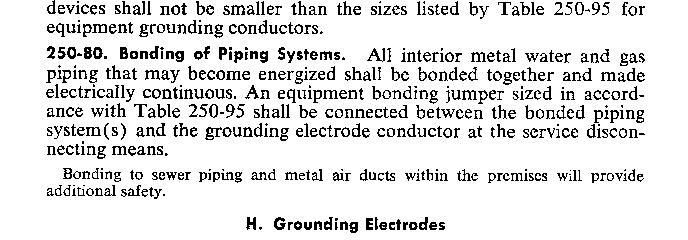jwelectric
Silver Member
gfretwell said:Back up a few notes and read the definition of bonding jumper. I see no place in the code that says you can't bond any metal to any other metal. You have only pointed out that it is not specifically required
The question is as an inspector do you require it?ICE said:We require a bonding jumper between cold and hot water pipes at the water heater
As a contractor I am telling you I aint gonna to do it!
As an inspector I will never tell someone to do something unless I can show them in print that it is required.

